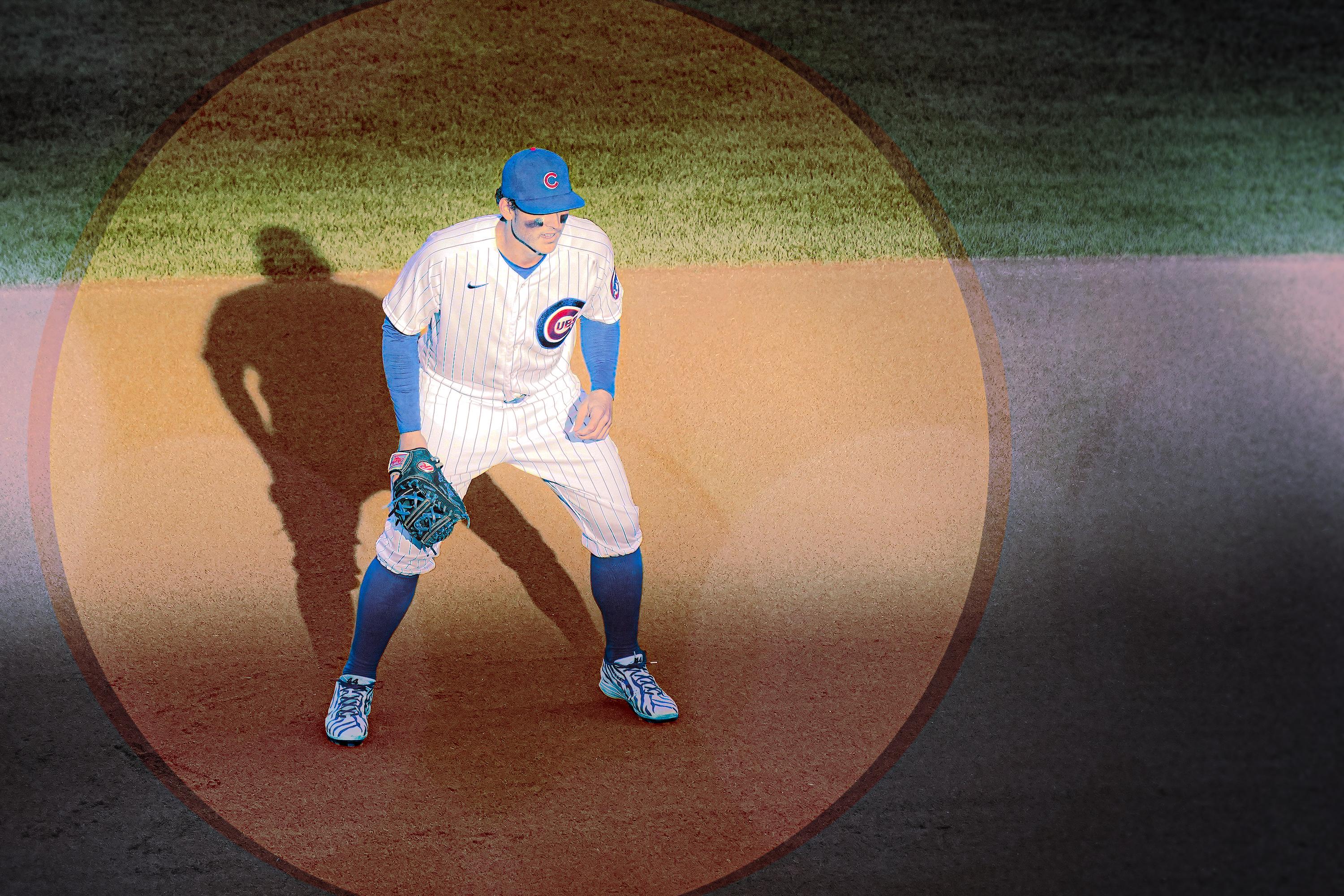
It’s been a long four years, so you’d be forgiven for forgetting the way things used to be. The sweet, nostalgic tang of rotten luck. The certainty of Wrigleyville settling down come October. The magnanimous pity doled out just about everywhere but St. Louis and the South Side of Chicago: Well, at least you’re not a Cubs fan.
Everything changed, of course, in 2016, the year the Curse of the Billy Goat was finally crushed beneath the cleats of a historically great team. It was, as it happened, a very good time to be a Cubs fan. The Cubs won their first World Series in 108 years, and they were a juggernaut. Under manager Joe Maddon, the team went 103-58, the franchise’s best record since 1910, and compiled a slew of other bona fides even before factoring in a historic championship: a regular-season run differential of +252, the lowest combined ERA in the majors (3.15), the fewest hits (1,125) and runs (556) allowed, the second-highest teamwide on-base percentage (.343, a hair below Boston’s .348), the most walks (656), and the third-most runs per game (4.99).
Given that much of that team remained locked down contractually for seasons to come, it stood to reason that whatever your guiding baseball ideology—the mysteries of the baseball gods (curse: snapped!) or, well, the clean logic of everything in the previous paragraph—the odds were high that the good times were just beginning. The Cubs were “the best, most complete team in baseball,” Bleacher Report summarized as the 2017 campaign began; both Vegas and FiveThirtyEight agreed, with each giving the team the best odds in the majors to win it all that season. “Chicago appears ready to repeat after dream run,” suggested The Sporting News.
But then, well, the Cubs didn’t. In 2017, they again won the NL Central, and made it all the way to the NLCS before falling to the Dodgers, four games to one. A year later, they found themselves playing the Brewers in a tiebreaker game for the division; they lost, and then were toppled by the Rockies in the wild-card game. By 2019, when the Cubs went 84-78 and didn’t crack the playoffs at all, the organization had seen enough, and sent Maddon packing; he promptly rejoined the Angels as skipper, while David Ross took the helm on the North Side.
Ross spent his final year as a player on the 2016 squad. He caught Jake Arrieta’s no-hitter that April, and hit a home run in a dramatic Game 7 of the World Series—plenty to soothe fans who watched him commit a throwing error behind the plate earlier in the game that led to two Cleveland runners scoring. At 39, he—hailed as Grandpa Rossy—became something of a folk hero. When the Cubs walked off the field victorious, they carried Ross on their shoulders. Following his retirement that offseason, the Cubs hired him as a special assistant; his elevation to manager was at least in part a deliberate attempt to bring back the magic of that championship squad.
Four years on, the core of that curse-breaking team remains intact. Anthony Rizzo and Kris Bryant remain, as do Javy Báez, Willson Contreras, and Kyle Schwarber. That’s unlikely to last much longer. This month, Rizzo said it plainly: “This could be our last run with all our guys,” he told The Chicago Tribune. “This could be my last year. Who knows?”
Rizzo—who caught the final out of the 2016 World Series—is indeed looking at what could be his final year in Chicago. 2021 will be the second of two club-option years to close out a deal signed back in 2013; the team notably did not pursue an extension with him this winter. Báez, Schwarber, and Bryant are also due to become free agents in 2021; Contreras has free agency looming a year later. (Bryant’s failed service-time grievance would have seen him become a free agent after this season had it been successful.) But—given that the team already floated trading both Bryant and Contreras this winter, and the extent to which the Ricketts family has belabored its purported losses as owners—it’s unclear how much of that group will even remain next season. For the core that broke the curse, 2020 really could be the last hurrah.
If the Cubs spent a century as baseball’s lovable losers—well, once they weren’t losers, for a lot of fans they weren’t terribly lovable either. Gone was that pan-MLB magnanimity; instead, these were “hateable winners,” and perhaps the most loathed team in baseball—other than the Yankees, of course. As with the Warriors, the line between scrappy sweetheart and sporting villain turned out to be a thin one. For many baseball fans—perhaps especially those who had the misfortune of watching the Cubs sock their team in the eye during that electric championship year (ahem)—the interest in flying the W, or in Maddon’s kooky team bonding tactics, declined precipitously after October 2016.
Sporting villainy is a wishy-washy business—such is sports, generally, where narratives and legends and, er, arbitrary geographical opinions are often the point—but while these 2020 Cubs aren’t exactly the underdogs of yore, they’re certainly not boogeymen, either. (It probably doesn’t hurt that the Astros and their trash cans readily subsumed this year’s villain mantle.)
The 2020 Cubs once again lead the NL Central; even after dropping two games to the red-hot White Sox over the weekend, their 18-10 record leaves them with the second-best mark in the National League, behind only the Dodgers. At the midway point of the shortened 2020 season, the Cubs are dominant; Yu Darvish—who gave up a single run over seven innings against the White Sox on Sunday—is currently third in ERA and first in WAR among pitchers in the National League and is arguably the front-runner for the NL Cy Young.
But if the 2016 team was a freight train, this squad is something else: it sits slightly above average in ERA and runs allowed (13th and tied for ninth), and is underwhelming in batting average and OPS (24th and 17th). These Cubs—with the Maddon gimmicks traded in for the camaraderie of a former teammate—are greater than the sum of their parts. If this really is it for a team that will go down in baseball history, you could do worse than tagging along for the fun.

